
Sayulita: The Bohemian Beach Haven of Mexico
Nestled on the Pacific coast of Mexico, Sayulita is a charming beach town with a bohemian vibe. Known for its colorful streets, friendly locals, and vibrant surf culture, Sayulita offers a unique blend of natural beauty and laid-back lifestyle. Whether you're looking to ride the waves, explore local art, or simply relax under the sun, Sayulita has something for everyone. Sayulita's main beach is a hub of activity, attracting surfers from around the world with its consistent waves. If you're new to surfing, there are plenty of local instructors ready to show you the ropes. Beyond the beach, the town itself is a treasure trove of artisan shops, offering everything from handmade jewelry to traditional Mexican crafts. Food lovers will delight in Sayulita's diverse culinary scene. From street tacos to upscale dining, the town offers a range of options to satisfy any palate. Don't miss the chance to try fresh seafood, especially the ceviche, which is a local favorite. For those seeking adventure, Sayulita's surrounding jungle offers numerous hiking trails and hidden waterfalls. Kayaking, paddleboarding, and snorkeling are also popular activities, providing plenty of ways to explore the stunning coastline. As the sun sets, the town comes alive with music and dance, offering a glimpse into the rich cultural heritage of the region.
Local tips in Sayulita
- Visit during the shoulder seasons (spring and fall) for fewer crowds and pleasant weather.
- Bring cash, as many local vendors and restaurants do not accept credit cards.
- If you plan to surf, check the tide schedules to catch the best waves.
- Use biodegradable sunscreen to protect the local marine life.
- Explore the town on foot or by renting a golf cart, which is a popular mode of transport.
Sayulita: The Bohemian Beach Haven of Mexico
Nestled on the Pacific coast of Mexico, Sayulita is a charming beach town with a bohemian vibe. Known for its colorful streets, friendly locals, and vibrant surf culture, Sayulita offers a unique blend of natural beauty and laid-back lifestyle. Whether you're looking to ride the waves, explore local art, or simply relax under the sun, Sayulita has something for everyone. Sayulita's main beach is a hub of activity, attracting surfers from around the world with its consistent waves. If you're new to surfing, there are plenty of local instructors ready to show you the ropes. Beyond the beach, the town itself is a treasure trove of artisan shops, offering everything from handmade jewelry to traditional Mexican crafts. Food lovers will delight in Sayulita's diverse culinary scene. From street tacos to upscale dining, the town offers a range of options to satisfy any palate. Don't miss the chance to try fresh seafood, especially the ceviche, which is a local favorite. For those seeking adventure, Sayulita's surrounding jungle offers numerous hiking trails and hidden waterfalls. Kayaking, paddleboarding, and snorkeling are also popular activities, providing plenty of ways to explore the stunning coastline. As the sun sets, the town comes alive with music and dance, offering a glimpse into the rich cultural heritage of the region.
When is the best time to go to Sayulita?
Iconic landmarks you can’t miss
Si Señor Sayulita
Experience authentic Mexican cuisine in the vibrant atmosphere of Sayulita at Si Señor Sayulita, where every bite tells a story.
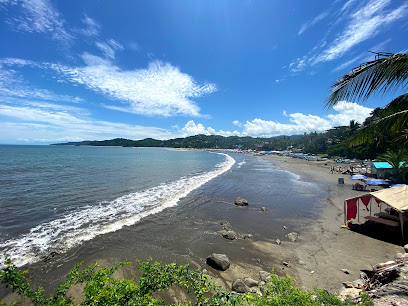
Alas Blancas Restaurante
Experience the flavors of Mexico at Alas Blancas Restaurante in Sayulita, where fresh seafood and vibrant dishes await in a welcoming atmosphere.
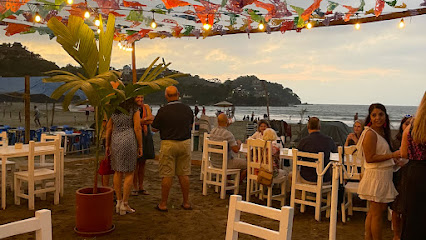
Escondido Bar
Discover Escondido Bar in Sayulita, where expertly crafted cocktails meet a vibrant atmosphere for an unforgettable night out.
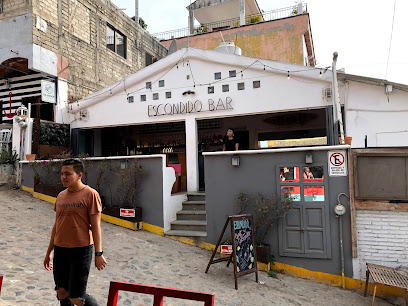
Sayulita gate
Experience the vibrant culture and stunning beaches of Sayulita at the enchanting Sayulita Gate, your gateway to adventure in Mexico.
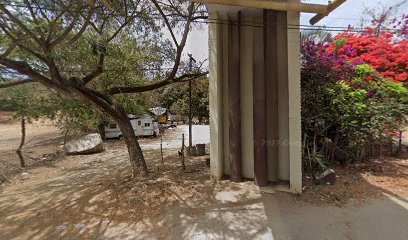
Unmissable attractions to see
Vallarta Adventures | Marina Vallarta
Experience the wonders of Puerto Vallarta's marine life with Vallarta Adventures' thrilling tours, from whale watching to scuba diving and beyond.
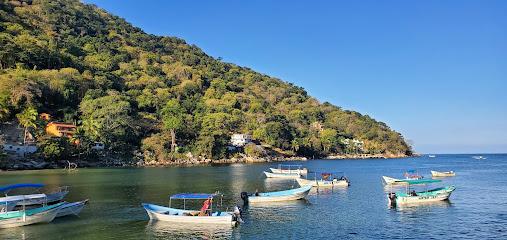
Marina Riviera Nayarit at La Cruz
Experience the tranquil beauty and vibrant culture at Marina Riviera Nayarit, a premier destination for relaxation and adventure in La Cruz de Huanacaxtle.
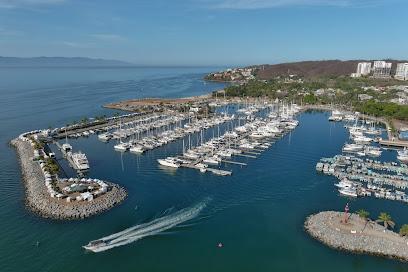
Playa Carricitos
Explore the serene beauty of Playa Carricitos, a tranquil public beach in Nayarit, Mexico, perfect for relaxation and adventure.
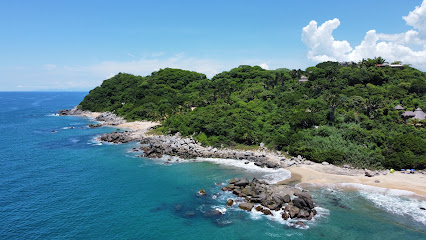
Sayulita Discovery
Experience the vibrant culture and stunning landscapes of Sayulita with personalized tours from Sayulita Discovery, your gateway to adventure.
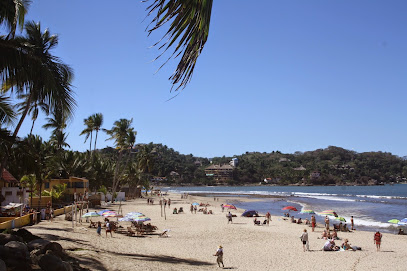
EcoHike Sayulita Hiking Tours
Discover the breathtaking trails and diverse wildlife of Sayulita with EcoHike Sayulita's sustainable hiking tours, perfect for nature lovers and adventurers.
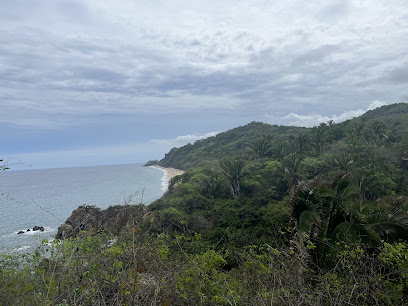
Evoke The Spirit
Discover the vibrant art scene and unique local crafts at Evoke The Spirit, Sayulita's must-visit gallery for tourists and art enthusiasts.
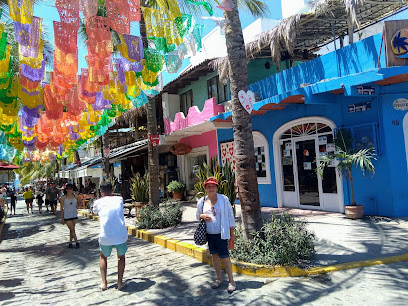
Letras Sayulita
Explore the vibrant art scene at Letras Sayulita, a cultural landmark showcasing local creativity in the heart of Nayarit's coastal paradise.
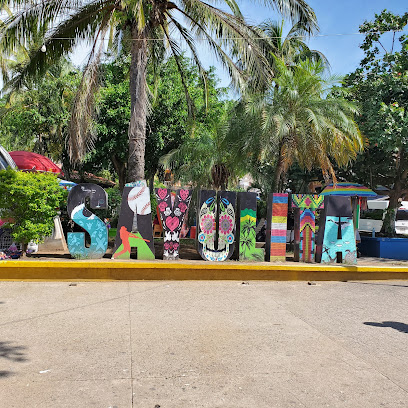
Playa Las Cuevas
Experience the enchanting beauty of Playa Las Cuevas, Sayulita's serene beach paradise with calm waters, vibrant sunsets, and lush landscapes.
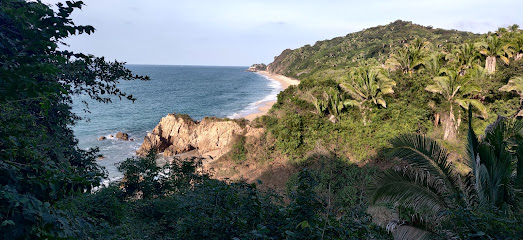
Campamento Tortuguero Sayulita
Experience the magic of sea turtle conservation at Campamento Tortuguero Sayulita, a unique eco-friendly destination that combines education and nature.
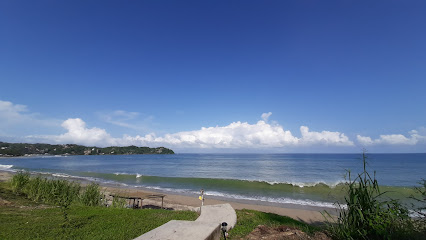
LA VIDA BELLA BOAT TOURS PUERTO VALLARTA
Experience the awe-inspiring beauty of Puerto Vallarta with La Vida Bella Boat Tours, where adventure meets relaxation on the stunning Pacific coastline.
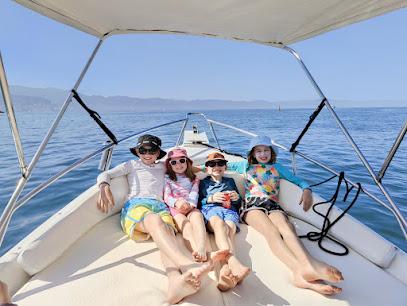
Sayulandia Best Experience
Explore Sayulandia Best Experience in Sayulita for an unforgettable blend of culture, adventure, and breathtaking natural beauty.
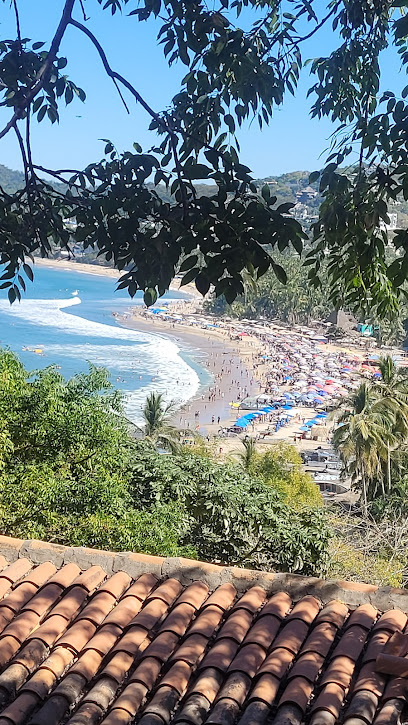
Playa sayulita
Experience the vibrant culture and stunning landscapes of Playa Sayulita, a perfect blend of adventure and relaxation in Mexico's coastal paradise.
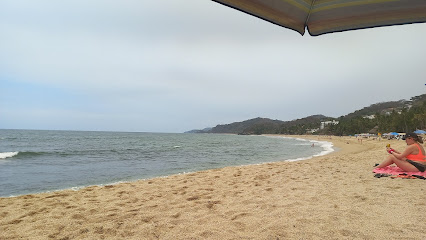
Sayulita Adventures
Discover the beauty of Sayulita at Sayulita Adventures, your ultimate guide to thrilling activities and cultural experiences in this vibrant coastal town.
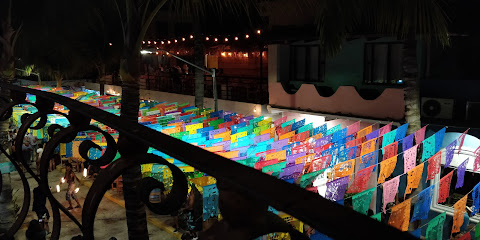
Sayulita hiking guide and rentals
Explore the breathtaking hiking trails and outdoor rentals in Sayulita, a vibrant coastal town that combines adventure with stunning natural beauty.
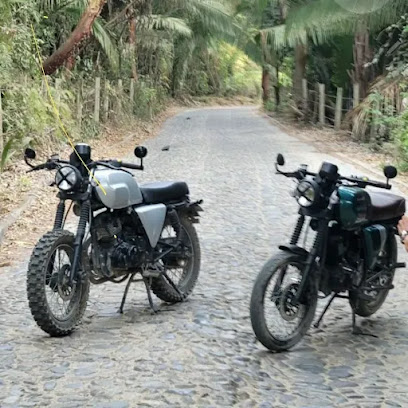
San pancho beach
Discover the serene beauty of San Pancho Beach, a tranquil coastal paradise in Nayarit, perfect for relaxation, exploration, and breathtaking sunsets.
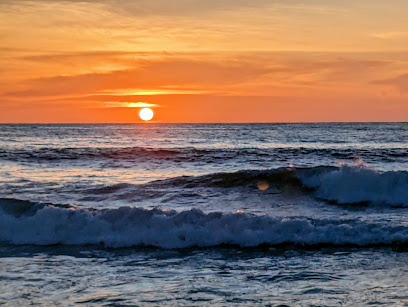
Essential places to dine
La Rustica Sayulita
Discover La Rustica Sayulita - A vibrant Italian restaurant offering delicious wood-fired pizzas and cocktails in the heart of Mexico's coastal paradise.
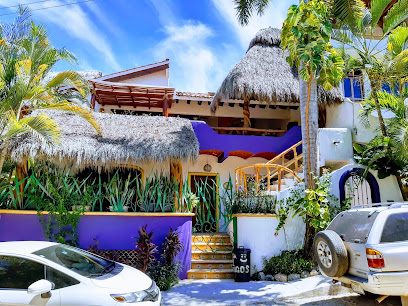
Don Pedro's Restaurant & Bar
Experience authentic Mexican cuisine at Don Pedro's Restaurant & Bar in Sayulita - perfect for breakfast or sunset cocktails!
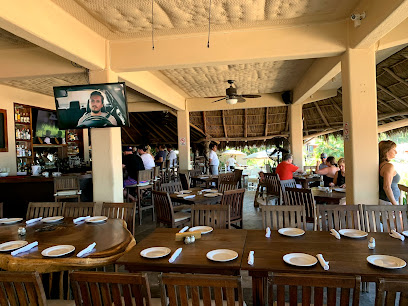
ChocoBanana
Experience the vibrant flavors of breakfast at ChocoBanana in Sayulita—where every dish celebrates local ingredients and Mexican hospitality.
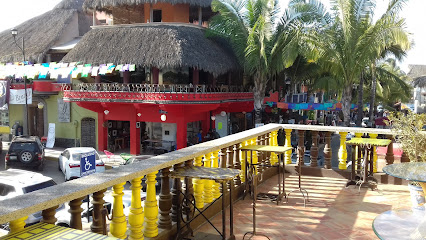
Mary's Traditional Mexican Cuisine
Savor authentic flavors at Mary's Traditional Mexican Cuisine in Sayulita - where every meal is a celebration of traditional Mexican cooking.
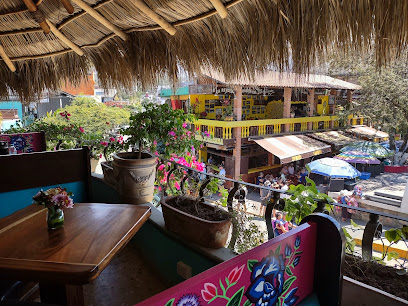
Santas iguanas
Experience the best Italian cuisine in Sayulita at Santas Iguanas—where every dish tells a story.
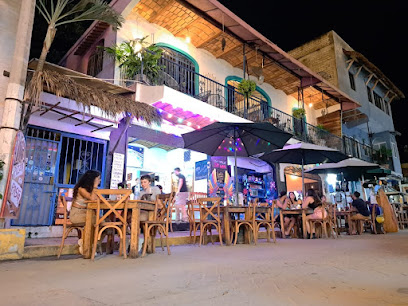
Barracuda Sayulita
Discover Barracuda Sayulita - A seafood paradise blending fresh flavors with authentic Mexican cuisine in picturesque surroundings.
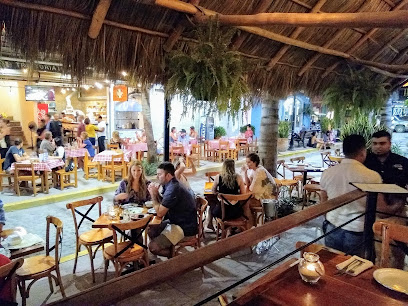
Trattoria Toscana Sayulita
Discover authentic Italian flavors at Trattoria Toscana Sayulita—where each meal tells a story and every bite transports you to Italy.
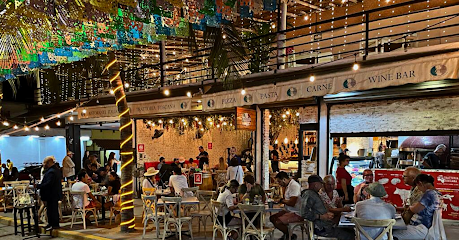
Casa Paraíso Restaurante Bar
Experience authentic Mexican flavors at Casa Paraíso Restaurante Bar in Sayulita – where every meal feels like a tropical getaway.
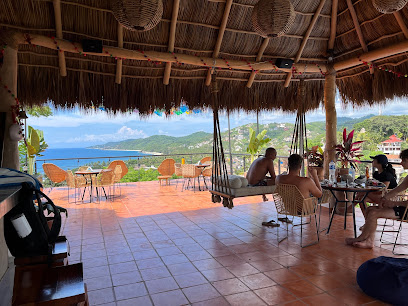
El Itacate
Discover El Itacate in Sayulita – where every taco tells a story of authentic Mexican flavor and coastal charm.
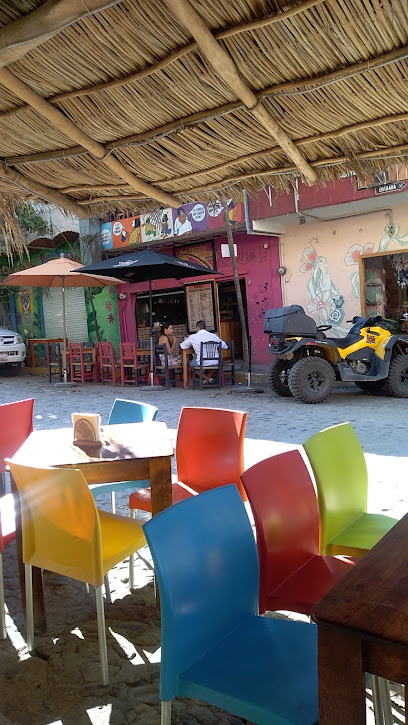
Xochi
Discover Xochi in Sayulita - where traditional Mexican cuisine meets modern flair in an inviting atmosphere perfect for any occasion.
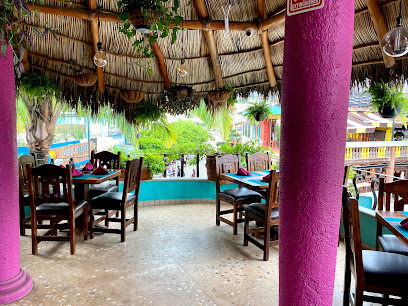
Kahlo Restaurante & Bar
Discover the vibrant tastes of Mexico at Kahlo Restaurante & Bar in Sayulita – where tradition meets innovation in every dish.
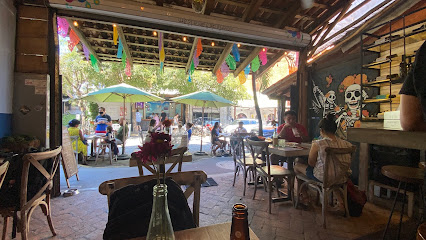
Cocos Beach Club Sayulita
Experience culinary bliss at Cocos Beach Club Sayulita, where fresh seafood meets breathtaking ocean views in this vibrant coastal gem.
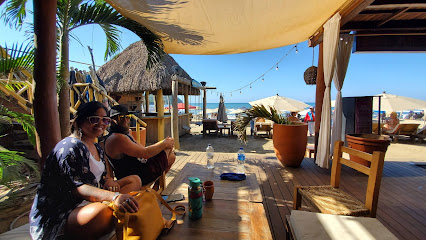
El Jakal
Discover the flavors of coastal Mexico at El Jakal, Sayulita's premier seafood destination offering fresh dishes in a welcoming atmosphere.
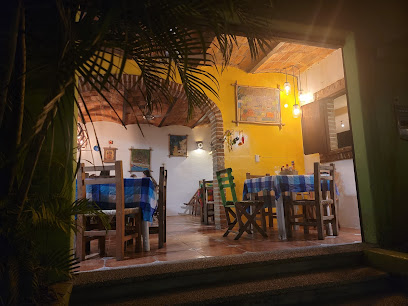
Sayulita Café Casa del Chile Relleno Comida Mexicana Sayulita Chiles Rellenos
Discover authentic Mexican flavors at Sayulita Café Casa del Chile Relleno, famous for its delicious chiles rellenos and vibrant atmosphere.
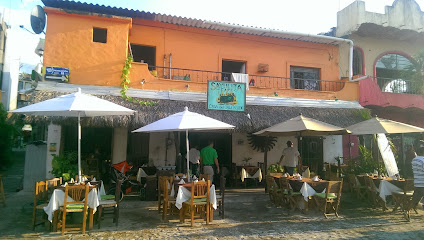
Tierra Viva Restaurant y Bar
Experience authentic Mexican cuisine with a twist at Tierra Viva Restaurant y Bar in Sayulita - where every dish tells a story.
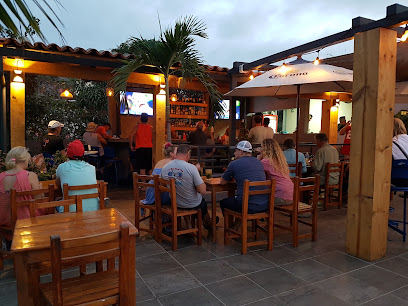
Markets, malls and hidden boutiques
Sayulita Wine Shop
Discover Sayulita Wine Shop, a treasure trove of fine wines, gourmet cheeses, and artisanal chocolates in the heart of the vibrant Sayulita.
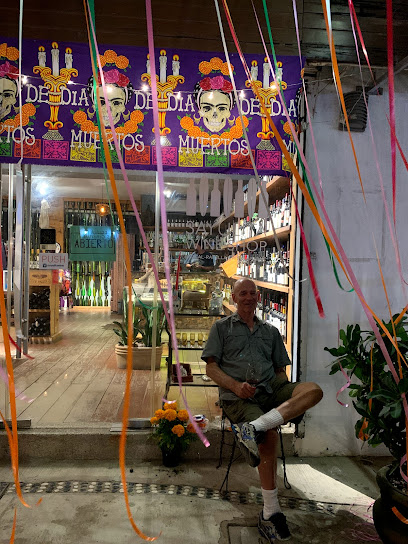
Nahui
Discover unique gifts and heartfelt souvenirs at Nahui, your go-to boutique in Sayulita, capturing the essence of Mexican craftsmanship.
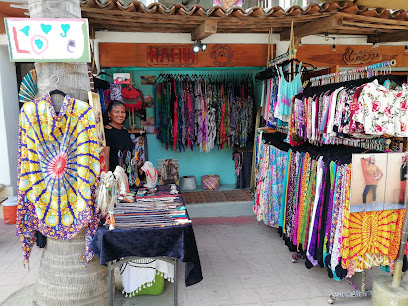
Sayulita Sol Jewelry
Explore exquisite handcrafted jewelry at Sayulita Sol Jewelry, a charming store in the heart of Sayulita, celebrating Mexican artistry and craftsmanship.
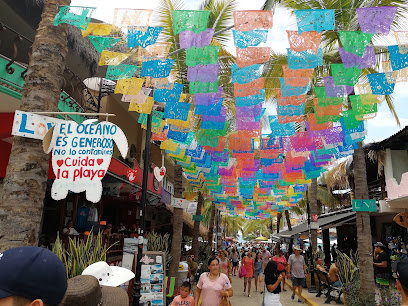
CALMA CHICHA
Shop unique handmade clothing and accessories at Calma Chicha, a charming boutique in the heart of Sayulita, Mexico.
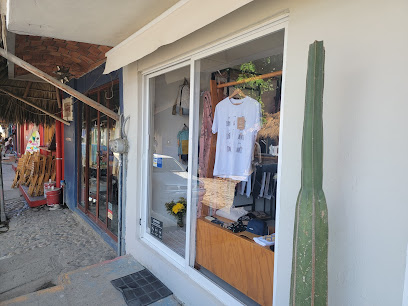
Anncla
Explore Anncla Boutique in Sayulita for unique clothing and accessories that celebrate the essence of Mexican culture.
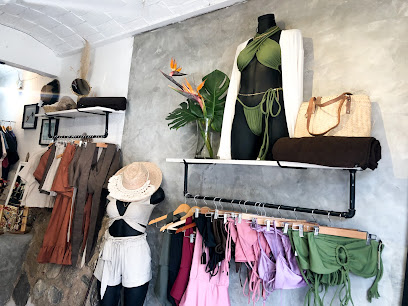
Sal De Mar Beach Store Sayulita
Explore vibrant beachwear at Sal De Mar Beach Store in Sayulita – the ultimate shopping destination for sun-seekers and style enthusiasts alike.
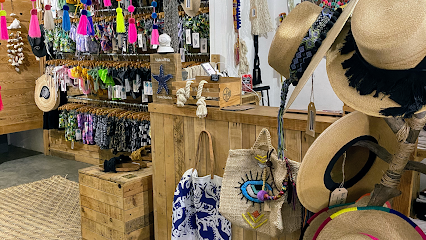
Manyana Sayulita
Experience the bohemian spirit of Sayulita at Manyana, a chic clothing store offering unique fashion and artisan creations.
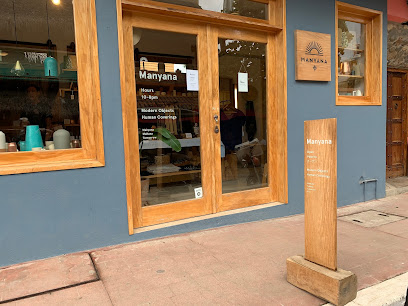
Tiendita Hola Sayulita
Explore the best of Sayulita at Tiendita Hola Sayulita, your go-to shop for unique gifts, local art, and handcrafted treasures.
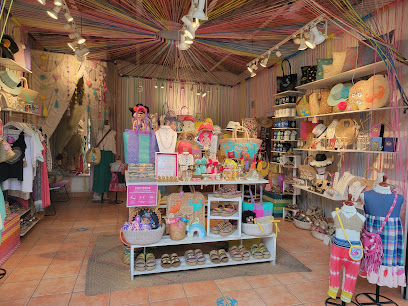
Kalu Mexican concept Boutique
Discover Kalu Mexican Concept Boutique in Sayulita for unique, culturally-inspired fashion that embodies the spirit of Mexico, perfect for every traveler.
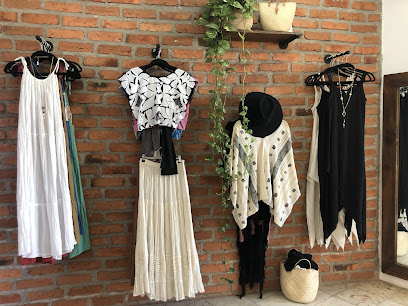
Nakawe Trading
Explore Nakawe Trading, Sayulita's boutique treasure trove, featuring handcrafted art, textiles, and jewelry that celebrate local culture and craftsmanship.

Kahlita Shop & Ethneakers.co
Explore the vibrant world of fashion at Kahlita Shop & Ethneakers.co in Sayulita, where local artistry meets unique style.
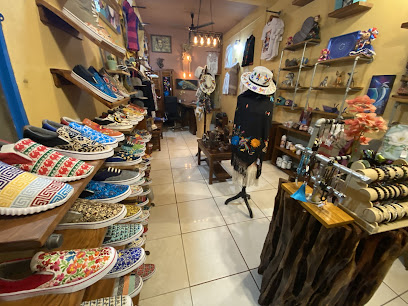
Calima.
Discover unique artisanal treasures at Calima, a boutique in Sayulita showcasing the vibrant creativity of Mexico's artisans.
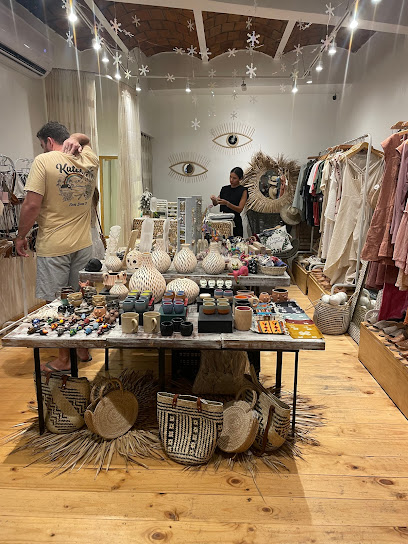
Gypsy Galeria
Explore the vibrant world of craftsmanship at Gypsy Galeria, a unique store in Sayulita offering handcrafted treasures and a glimpse into local artistry.
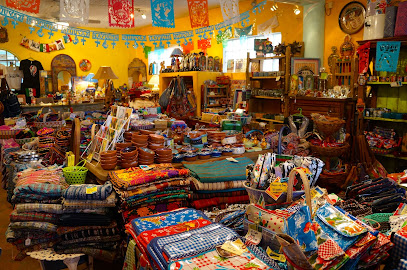
Los Rudos Surf Shop
Experience the vibrant surf culture of Sayulita at Los Rudos Surf Shop, your one-stop destination for surf gear and beachwear.

Blue Bamboo
Explore Blue Bamboo in Sayulita for unique fashion accessories that capture the essence of Mexico's vibrant culture.
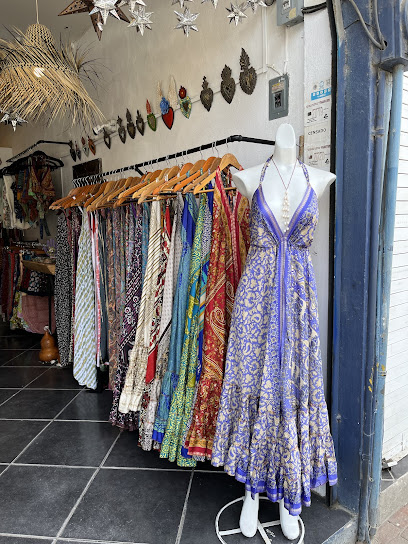
Essential bars & hidden hideouts
YamBak Sayulita
Experience the best handcrafted beers and vibrant nightlife at YamBak Sayulita, the heart of Sayulita's social scene.

Bar Don Pato
Experience the vibrant nightlife at Bar Don Pato in Sayulita, where lively music, delicious cocktails, and a welcoming atmosphere await you.
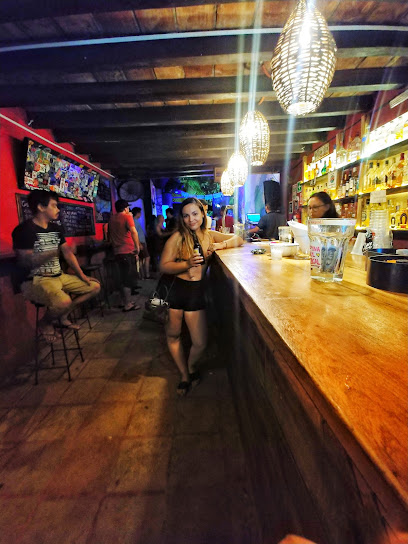
Latitude 20 Sayulita
Experience the best of Sayulita at Latitude 20, where delicious grilled dishes meet vibrant live music in a family-friendly atmosphere.
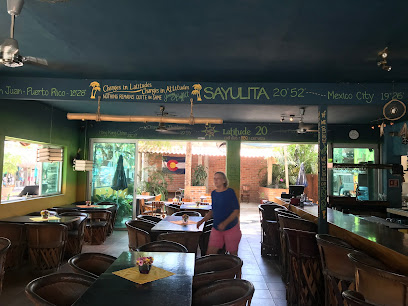
Sayulita Public House
Experience the vibrant flavors and festive atmosphere at Sayulita Public House, the ultimate dining and entertainment destination in Sayulita.
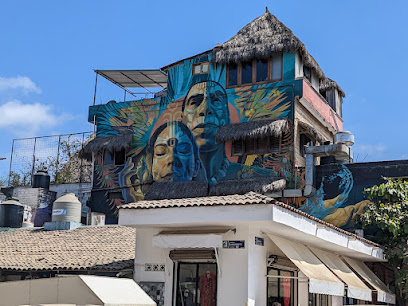
Atico Hookah Bar
Discover the vibrant Atico Hookah Bar in Sayulita, a perfect blend of relaxation, local flavors, and social ambiance for tourists seeking a memorable experience.
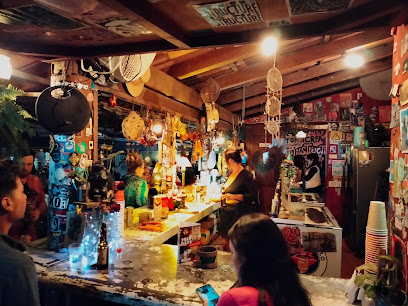
CAVA
Experience the vibrant nightlife of Sayulita at CAVA, where delicious drinks and a lively atmosphere come together for an unforgettable evening.
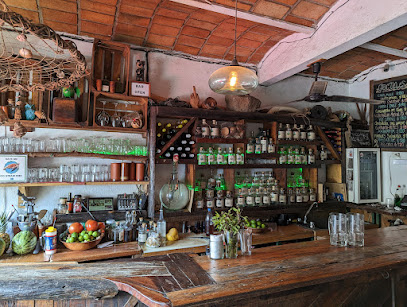
Lucid
Experience the vibrant nightlife and artistic ambiance of Lucid in Sayulita, where handcrafted cocktails meet local culture.
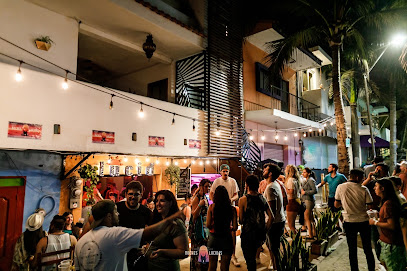
Club de Playa Camaron
Discover the vibrant atmosphere of Club de Playa Camaron, a beach bar in Sayulita offering cocktails, snacks, and stunning ocean views.
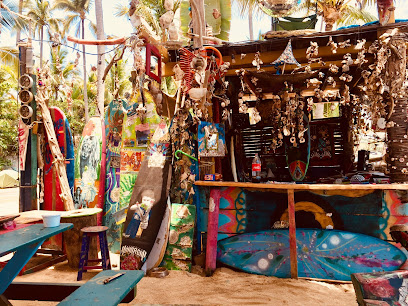
Coco's Bar
Experience the vibrant nightlife at Coco's Bar, Sayulita's premier live music venue, where every night is filled with rhythm, flavor, and unforgettable moments.
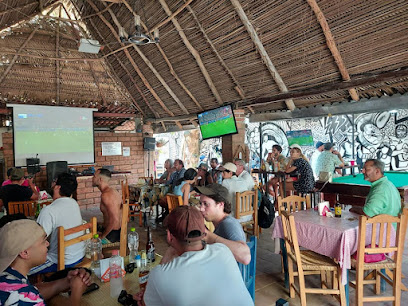
Escondido Bar
Discover Escondido Bar in Sayulita, where expertly crafted cocktails meet a vibrant atmosphere in the heart of Mexico's surf culture.
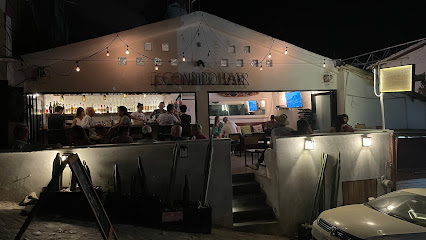
Bar Miramar Sayulita
Discover the vibrant flavors and stunning ocean views at Bar Miramar Sayulita, a premier grill and bar destination on Playa Norte.
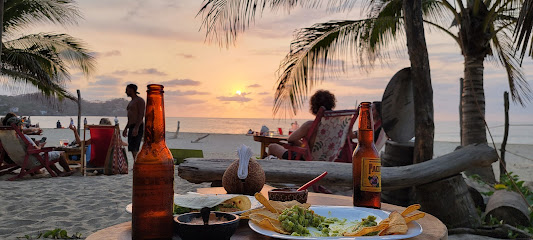
El Patio Sayulita
Discover El Patio Sayulita, a lively bar offering delicious drinks, local cuisine, and a vibrant atmosphere perfect for tourists in this charming coastal town.
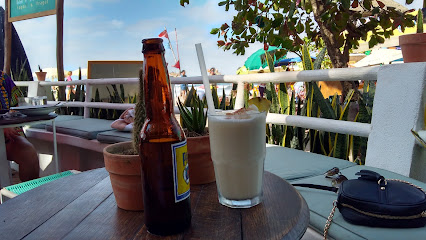
Barrilito Sayulita
Experience the vibrant nightlife and local flavors at Barrilito Sayulita, the ultimate bar destination in this coastal paradise.
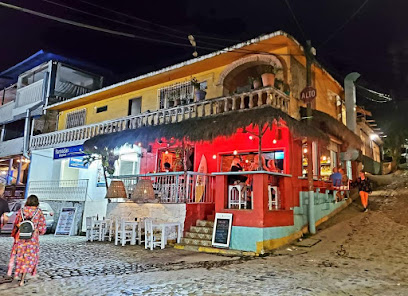
Wild Iris Bar
Experience the vibrant nightlife at Wild Iris Bar in Sayulita, where delicious drinks and live music create unforgettable memories.
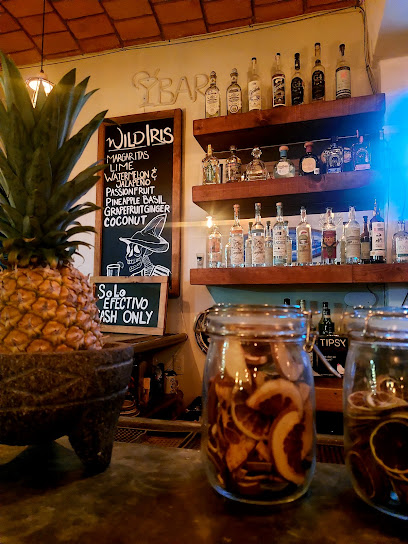
Local Phrases about Sayulita
-
- HelloHola
[oh-lah] - GoodbyeAdiós
[ah-dee-ohs] - YesSí
[see] - NoNo
[noh] - Please/You're welcomePor favor/De nada
[por fah-vor/deh nah-dah] - Thank youGracias
[grah-see-ahs] - Excuse me/SorryPerdón/Lo siento
[pair-dohn/loh see-en-toh] - How are you?¿Cómo estás?
[koh-moh ehs-tahs] - Fine. And you?Bien. ¿Y tú?
[bee-ehn. ee too] - Do you speak English?¿Hablas inglés?
[ah-blahs een-glays] - I don't understandNo entiendo
[noh ehn-tee-ehn-doh]
- HelloHola
-
- I'd like to see the menu, pleaseMe gustaría ver el menú, por favor
[meh goo-stah-ree-ah ver ehl meh-noo, poor fah-vor] - I don't eat meatNo como carne
[noh koh-moh kahr-neh] - Cheers!¡Salud!
[sah-lood] - I would like to pay, pleaseMe gustaría pagar, por favor
[meh goo-stah-ree-ah pah-gar, poor fah-vor]
- I'd like to see the menu, pleaseMe gustaría ver el menú, por favor
-
- Help!¡Ayuda!
[ah-yoo-dah] - Go away!¡Vete!
[veh-teh] - Call the Police!¡Llama a la Policía!
[yah-mah ah lah poh-lee-see-ah] - Call a doctor!¡Llama a un doctor!
[yah-mah ah oon dohk-tohr] - I'm lostEstoy perdido
[ehs-toy pair-dee-doh] - I'm illEstoy enfermo
[ehs-toy ehn-fehr-moh]
- Help!¡Ayuda!
-
- I'd like to buy...Me gustaría comprar...
[meh goo-stah-ree-ah kohm-prar] - I'm just lookingSólo estoy mirando
[soh-loh ehs-toy mee-rahn-doh] - How much is it?¿Cuánto cuesta?
[kwan-toh kwehs-tah] - That's too expensiveEsto es demasiado caro
[ehs-toh ehs deh-mah-syah-doh kah-roh] - Can you lower the price?¿Puedes bajar el precio?
[pweh-dehs bah-har ehl pree-syoh]
- I'd like to buy...Me gustaría comprar...
-
- What time is it?¿Qué hora es?
[keh oh-rah ehs] - It's one o'clockEs la una
[ehs lah oo-nah] - Half past (10)Media (10)
[meh-dee-ah (diez)] - MorningMañana
[mah-nyah-nah] - AfternoonTarde
[tahr-deh] - EveningNoche
[noh-cheh] - YesterdayAyer
[ah-yehr] - TodayHoy
[oy] - TomorrowMañana
[mah-nyah-nah] - 1Uno
[oo-noh] - 2Dos
[dohs] - 3Tres
[trehs] - 4Cuatro
[kwah-troh] - 5Cinco
[seen-koh] - 6Seis
[says] - 7Siete
[syeh-teh] - 8Ocho
[oh-choh] - 9Nueve
[nweh-veh] - 10Diez
[diez]
- What time is it?¿Qué hora es?
-
- Where's a/the...?¿Dónde está...?
[dohn-deh ehs-tah] - What's the address?¿Cuál es la dirección?
[kwal ehs lah dee-rehk-syon] - Can you show me (on the map)?¿Puedes mostrarme (en el mapa)?
[pweh-dehs mohs-trar-meh (ehn ehl mah-pah)] - When's the next (bus)?¿Cuándo es el próximo (autobús)?
[kwan-doh ehs ehl proh-ksee-moh (ow-toh-boos)] - A ticket (to ....)Un boleto (a ....)
[oon boh-leh-toh (ah)]
- Where's a/the...?¿Dónde está...?
History of Sayulita
-
Long before the arrival of Spanish explorers, Sayulita was inhabited by the indigenous Cora and Huichol people. These communities lived harmoniously with nature, utilizing the abundant resources of the region. They were skilled in agriculture, fishing, and crafts, creating intricate beadwork and textiles that remain culturally significant today.
-
The arrival of Spanish conquistadors in the early 16th century marked a significant turning point for Sayulita. The region, like much of Mexico, was subjected to Spanish rule, which brought about drastic changes in the local way of life. The indigenous population faced new diseases and cultural imposition, but they also integrated some aspects of Spanish culture, leading to a blend of traditions that can still be observed today.
-
Following Mexico's independence from Spain in 1821, Sayulita transitioned into a quiet, agrarian community. The fertile land and abundant waters supported farming and fishing, which became the primary livelihoods for the local population. This period also saw the gradual development of social structures and local governance in the village.
-
In the 1960s and 1970s, Sayulita gained popularity among a new wave of visitors—the hippies. Attracted by the area's natural beauty, laid-back lifestyle, and surf-friendly beaches, these travelers began to establish a counter-culture enclave. They contributed to the local economy by opening small businesses, which helped to put Sayulita on the map as a bohemian beach destination.
-
The 1990s saw a significant boom in Sayulita's popularity as a surfing hotspot. The consistent waves and picturesque beaches attracted surfers from around the world. This influx of surfing enthusiasts led to the development of surf schools, shops, and competitions, which further solidified Sayulita's reputation as a premier surfing destination.
-
Today, Sayulita is a vibrant blend of old and new, where traditional Mexican culture coexists with modern tourism. Efforts have been made to preserve the area's cultural heritage, including traditional festivals, artisanal crafts, and indigenous practices. At the same time, Sayulita has embraced its role as a tourist haven, offering a variety of accommodations, dining experiences, and activities that cater to visitors from around the globe.
Sayulita Essentials
-
Sayulita is located in the Riviera Nayarit region of Mexico, approximately 40 kilometers north of Puerto Vallarta. The nearest airport is Licenciado Gustavo Díaz Ordaz International Airport (PVR) in Puerto Vallarta. From the airport, you can take a taxi, rent a car, or use a shuttle service to reach Sayulita. The journey typically takes around 45 minutes to an hour by road.
-
Sayulita is a small town, and many of its attractions are within walking distance. For longer trips, local taxis and golf cart rentals are popular options. Public buses and colectivos (shared vans) also operate within the area and connect Sayulita to nearby towns and cities. Renting a car can be convenient for exploring the surrounding region at your own pace.
-
The official currency in Mexico is the Mexican Peso (MXN). Credit cards are accepted in many hotels, restaurants, and shops, but it is advisable to carry cash, especially in smaller establishments and markets. ATMs are available in Sayulita, but it's a good idea to withdraw sufficient cash upon arrival to ensure you have enough funds for your stay.
-
Sayulita is generally a safe destination for tourists. However, it is wise to take standard precautions. Avoid walking alone at night in unfamiliar areas and keep an eye on your belongings in crowded places. While Sayulita does not have specific high-crime areas targeting tourists, it is always best to stay vigilant and aware of your surroundings.
-
In case of emergency, dial 911 for immediate assistance. Sayulita has a local police station and medical facilities. It is recommended to have travel insurance that covers medical emergencies. For minor health issues, there are pharmacies in Sayulita where you can purchase over-the-counter medications.
-
Fashion: Do dress comfortably and casually, but avoid overly revealing clothing, especially in more traditional areas. Religion: Do respect local customs and traditions, especially when visiting religious sites. Public Transport: Do be respectful and give up your seat to elderly passengers. Don't eat or drink on public transport. Greetings: Do greet people with a friendly 'hola' or a handshake. Eating & Drinking: Do try local delicacies and accept food offerings graciously. Don't refuse hospitality, as it is considered impolite.
-
To experience Sayulita like a local, visit the local markets where you can buy fresh produce and traditional Mexican goods. Engage with locals, as they are often friendly and willing to share stories about the town's history and culture. Don't miss the Thursday Farmers Market for unique crafts and food items. For a unique experience, take a surf lesson or join a yoga class on the beach.
Nearby Cities to Sayulita
-
Things To Do in Guadalajara
-
Things To Do in Ixtapa-Zihuatanejo
-
Things To Do in Guanajuato
-
Things To Do in San Miguel de Allende
-
Things To Do in Cabo San Lucas
-
Things To Do in Queretaro
-
Things To Do in Taxco
-
Things To Do in Mexico City
-
Things To Do in Acapulco
-
Things To Do in Monterrey
-
Things To Do in Puebla
-
Things To Do in McAllen
-
Things To Do in Laredo
-
Things To Do in Matamoros
-
Things To Do in Brownsville











